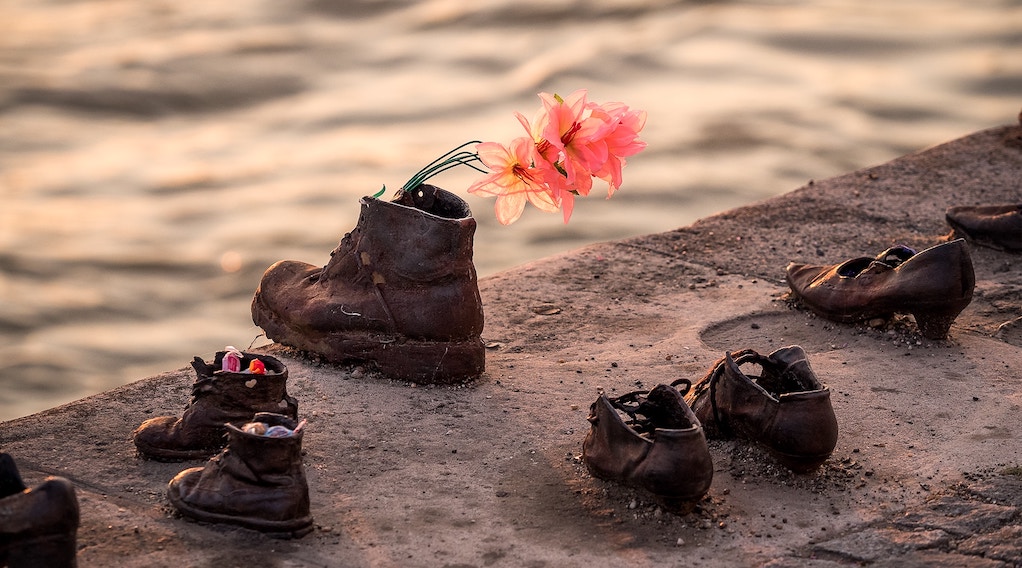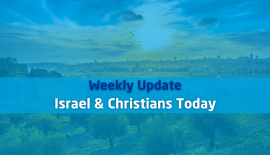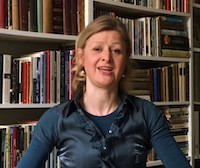‘Never Again!’ is Now!
Monday, 27 January, 2020, marked the 75th anniversary of the liberation of Auschwitz-Birkenau by Soviet troops. The world commemorated the tragedy and horrors of the Holocaust, remembering the six million (some argue many millions more!) precious Jewish lives that were ruthlessly snuffed out.
Collectively we gasp again at what man can do to man and wonder how such a thing as the Holocaust could ever have happened. Where were the normal, decent people in the face of such evil? Why did our Jewish friends and neighbours not receive more help so they could be rescued from a fate unspeakable?
My nation of The Netherlands was home to 144,000 Jews before the Second World War. After Nazi rule, only 40,000 Jewish people were left. The ghost town areas of Amsterdam, completely bereft of all its Jewish inhabitants, served for years as a silent witness to the huge numbers of people, young and old, deported for the sole crime of being Jewish. How could this have been?
History tells us that some Dutch people collaborated with the German occupiers. Some joined the underground resistance and fought back. One famous such hero was Corrie ten Boom who, with her family, hid Jews and helped where she could.
My question is no longer, “What would I have done?” My question has become, “What am I doing?”
We like to remember people like Corrie ten Boom. They had a moral compass that directed them to do what was right despite the personal cost and suffering. We like to think of them as our friends, as kindred spirits, as we, too, would want to have been like them in the face of such monumental challenges. But —and I say this with shame— most Dutch people did not help. Most kept their heads low and hoped the grotesque nightmare would go away. Of course, war is complicated. The Germans were ruthless. If you helped, you and your family, perhaps your whole street or village, might be tortured and deported to the camps. So people looked away. What could one person do against a war machine, against all the propaganda?
Desperate times have a way of bringing into the open what kind of person we really are; what our character is made of. The track record of my fellow Dutch folk is that right under our noses more than 100,000 beautiful souls were tragically murdered. At the International Holocaust Remembrance Day, we remember the many millions who died and also those who returned from the camps broken and often the sole survivors of their entire family, who were frequently mistreated and unwelcome even after returning from their hellish experiences. I cannot help but wonder what kind of person I would have been had I been alive at that time. In the face of such evil and under such difficulties, how would I have acted? What would I have done? Would I have helped?
While we cannot change the past, the present is witnessing a horrifying rise of the old poison of anti- Semitism in Europe and around the globe, showing disturbing similarities to the 1930s. Again Jewish businesses are singled out and marked for boycott, through the Boycott, Divest and Sanction (BDS) efforts. A recent ruling by the European Court of Justice ruled that Israeli wine originating from the so-called West Bank must be labelled as coming from ‘Israeli settlements’. Jewish professors and students are made to feel unwelcome in academia and on university campuses. Legislation is being considered that would make Jewish life impossible such as proposals within the EU to outlaw circumcision and kosher slaughter. Again neo-Nazi rhetoric is propagated in Central and Eastern European countries, while violent attacks on Jews in Western European countries, and most recently also in the US, is becoming alarmingly more common, so much so that the German government (!) has this past year advised German Jews not to wear skullcaps as their safety can no longer be guaranteed.
Am I willing to stand with the Jewish people and the Jewish State? Am I helping? Are you willing to do so, despite the likely cost?
As the old hatred of anti-Semitism is gaining momentum, often expressed by hatred for Israel, my question is no longer, “What would I have done?” My question has become, “What am I doing?” Am I willing to stand with the Jewish people and the Jewish State? Am I helping? Are you willing to do so, despite the likely cost? May our remembrance of the atrocities of the Second World War remind us where the cancer of anti-Semitism can lead, and may it galvanise all of our resolves to fight this evil and help where we can to stop it in its tracks.





